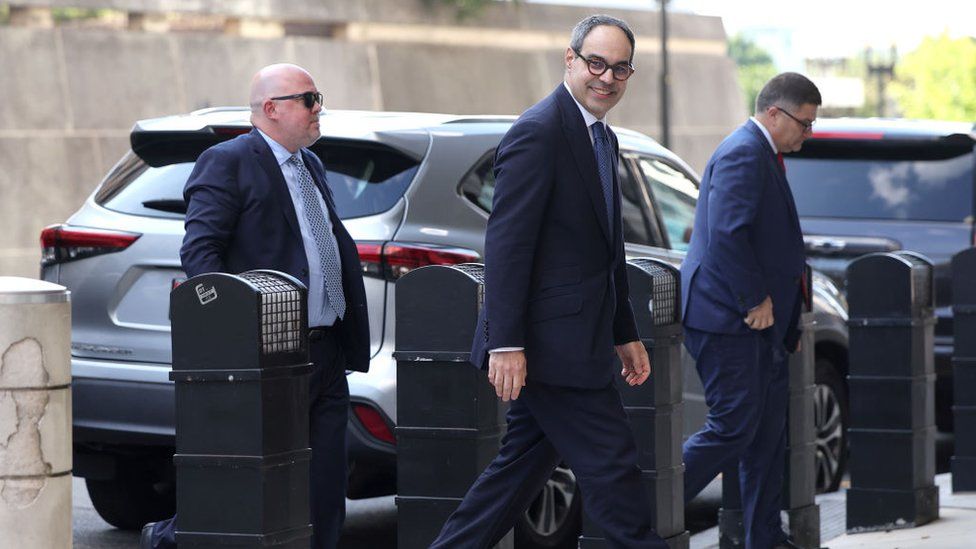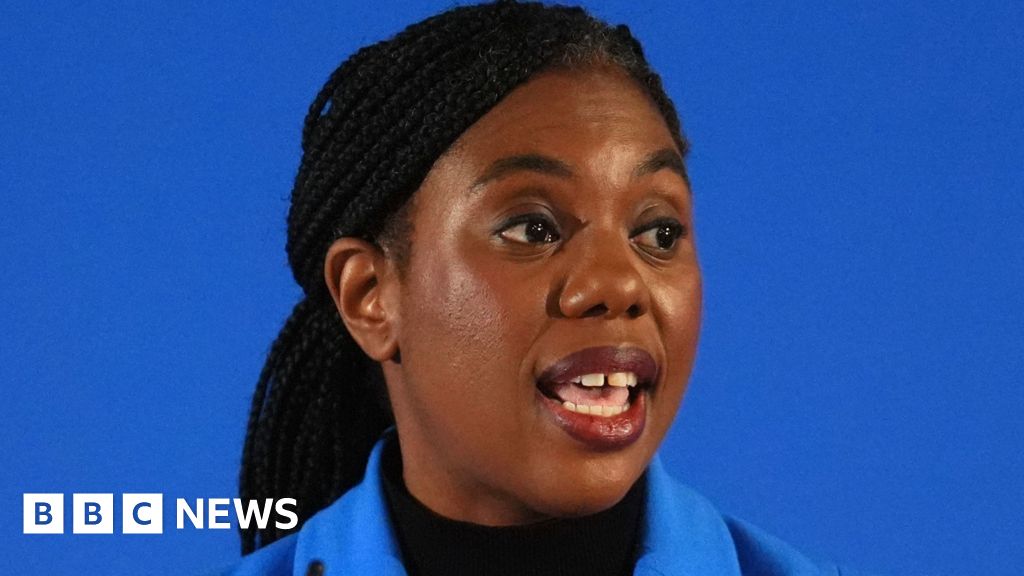ARTICLE AD BOX
 Image source, Getty Images
Image source, Getty Images
Jonathan Kanter, assistant attorney general for the antitrust division at the Department of Justice, arrives at court
By Natalie Sherman & Brandon Drenon
BBC News
Google has dismissed arguments that it is the world's biggest search engine because of illegal practices, saying to switch to another company takes "literally four taps".
A lawyer for the company made the remarks in court in Tuesday in Washington DC, where it is facing trial over whether it is a monopoly.
The case is a major test of the power of US regulators over the tech giants.
Prosecutors said the case was about "the future of the internet".
The trial is expected to last 10 weeks and will feature testimony from Google boss Sundar Pichai as well as executives from Apple.
Judge Amit Mehta, who was appointed to his position on DC district court by former president Barack Obama, will decide the case - the biggest for the industry in 25 years.
The government's lawsuit focuses on billions of payments Google has made to Apple, Samsung, Mozilla and others to be pre-installed as the default online search engine.
The US said Google typically pays more than $10bn a year for that privilege, securing its access to a steady gush of user data that helped maintain its hold on the market.
"Are there other distribution channels? Other ways of distributing search? Yes.... Are these powerful as defaults? No," Department of Justice lawyer Kenneth Dintzer said, addressing the judge. "The best testimony for that, for the importance of defaults, your Honour, is Google's cheque book."
When Apple first installed Google as the default search engine in 2002, no payments were involved, prosecutors said.
But by 2005, worried about its lead eroding, Google proposed to pay the company - later threatening to cancel payments if other firms got similar access, the government said.
The company also discouraged Apple from expanding its own search products and Samsung, which makes Android phones, from working with a company that used a different kind of search method.
"This is a monopolist, flexing," Mr Dintzer said.
Google said it faced intense competition, not just from general search engine firms, such as Microsoft's Bing, but more specialised sites and apps that people use to find restaurants, airline flights and more.
"There are lots of ways users access the web, other than through default search engines, and people use them all the time," the company's lawyer, John Schmidtlein, said.
"The evidence in this case will show Google competed on the merits to win pre-installation and default status, and that its browser and Android partners judged Google to be the best search engine for its users."
Mr Schmidtlein said that despite Windows PCs being the number one used desktop and having Bing pre-set as the default browser, a majority of Windows users still opt to use Google - demonstrating Google's superiority as a search platform.
The trial is the latest regulatory challenge to face Google, which recently settled another case over its app store brought by US states. The company is also facing a federal lawsuit over its advertising business and has found itself in the crosshairs in Europe, where it has been fined billions in monopoly cases.
The government has asked for "structural relief" if it wins - which could mean the break-up of the company.
The suit comes as artificial intelligence and new forms of search, such as ChatGPT, are providing a more serious threat to Google's dominance than the company has encountered in years.

 1 year ago
33
1 year ago
33








 English (US) ·
English (US) ·